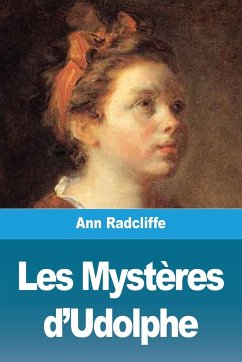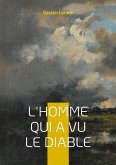Les Mystères d'Udolphe est le quatrième roman, et aussi le plus populaire, d'Ann Radcliffe. Il retrace les aventures d'Émilie Saint-Aubert qui, parmi beaucoup d'autres péripéties, va perdre son père, va devoir faire face à la peur et au surnaturel dans un château lugubre, et être confrontée aux machinations d'un brigand italien. Le roman, souvent cité comme l'archétype du roman gothique, joue un rôle important dans Northanger Abbey, écrit par Jane Austen, roman dans lequel une jeune femme impressionnable, après avoir lu le roman d'Ann Radcliffe, en vient à considérer ses amis et connaissances comme des méchants ou des victimes, ce qui donne des résultats amusants.
Bitte wählen Sie Ihr Anliegen aus.
Rechnungen
Retourenschein anfordern
Bestellstatus
Storno








